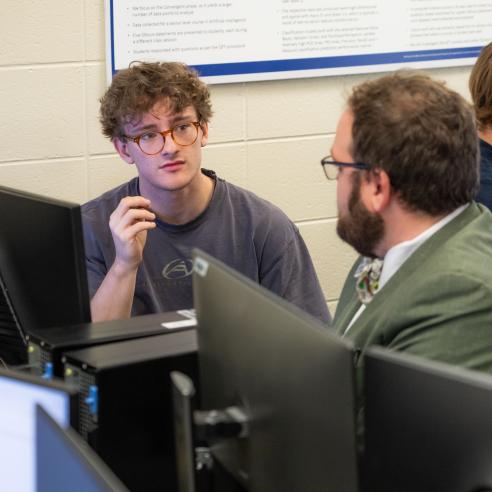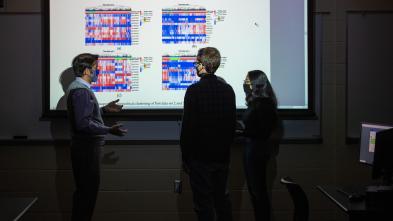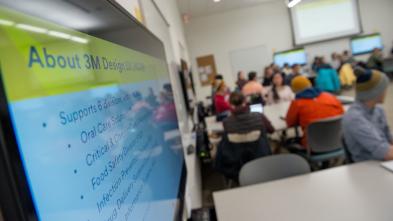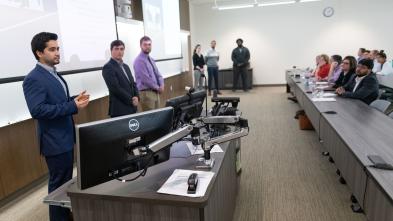

Computer Programmer
Gain the knowledge, skills, and firsthand experience necessary to become a computer programmer with UWEC's computer programmer certificate.
Add a Sought-After Certificate to Your Resume
Courses throughout the certificate will introduce you to programming, computer software design, data types, procedural abstraction, digital logic, machine models, assembly language, flow control, object-oriented design, and so much more. Students gain the know-how they need to have a competitive edge in the workforce, including the ability to understand specific software and programs often found in the field.
The program is open to both students and working computer professionals already in the field.
Program Details
Blugold Stories
Coursework within the computer programmer certificate will prepare you to use — and evaluate — a wide variety of modern tools and languages used in the construction of computing systems. Your first-hand experience with up-to-date technology in the classroom will translate directly into a fulfilling career in computer programming.
Here are a few courses in Computer Programmer at UW-Eau Claire.
DS 150
Computing in Python: Fundamentals and Procedural Programming
Computing in Python provides an introduction to the world of procedural programming in the Python computer language. Students will learn tactics and approaches for solving novel problems in the world of data science. Main tasks are the storage, retrieval, processing, and visualization of data. Examples will be drawn from bioinformatics, economics, and other fields.
CS 425
Machine Learning
This course introduces students to the field of machine learning. Students will learn about the theoretical foundations of machine learning and how to apply machine learning to solve new problems. The course focuses on three major paradigms in machine learning which are supervised learning, unsupervised learning and data visualization.
DS 770
Ethical Decision-Making Using Data
This course examines how data science relates to developing strategies for organizations. The emphasis is on using an organization’s data assets to inform better decisions. The course investigates the use of data science findings to develop solutions to competitive organizational challenges. Special attention is given to critically examining decisions to ensure that they are ethical and avoid unfair bias. Professional codes of conduct as well as local and international regulations are also considered.
Get More Info
Sign up to receive additional information about our campus.
Meet the Faculty













